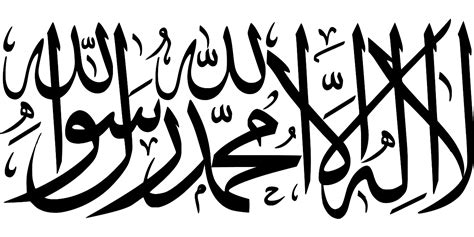In Islam, making dua (supplication) is a direct conversation with Allah. It is the core of worship, a moment where a believer stands before their Creator, humble and hopeful. Among the most common and important prayers we make are those asking for forgiveness. However, the Arabic language, the language of the Quran, is incredibly precise. It offers different words for forgiveness, each with a unique and powerful meaning. Two of the most important are maghfirah (مغفرة) and afw (عفو).
Have you ever wondered if there is a better way to ask for forgiveness? Is there a specific word that carries more blessings and a deeper promise? Lets explore a beautiful insight from the teachings of Prophet Muhammad (PBUH): the benefit of specifically asking Allah for ‘afw’. We will explore the Quran and Sunnah to understand why this particular request can lead to a more complete, encompassing, and transformative forgiveness.
Understanding the Key Terms: What Do ‘Maghfirah’ and ‘Afw’ Mean?
To appreciate the difference, we must first understand the root meanings of these two Arabic words.
What is Maghfirah?
Maghfirah comes from the root verb ghafara (غَفَرَ), which means to cover, conceal, or protect. When we ask Allah for maghfirah, we are asking Him to:
· Cover our sins and shortcomings.
· Protect us from the exposure and disgrace of our mistakes.
· Shield us from the negative consequences of our sins in this world and the Hereafter.
Maghfirah is a magnificent mercy. It is the general, all-encompassing forgiveness that Allah grants to those who repent sincerely. A beautiful Quranic verse states:
“And seek forgiveness of your Lord and repent to Him, [and] He will grant you a good provision for a specified term and give every doer of favor his favor.” (“Surah Hud, Ayah 3”)
What is Afw?
Afw comes from the root verb ‘afa (عَفَا), which means to pardon, absolve, remove, obliterate, or annul. It carries a stronger and more comprehensive meaning than maghfirah. When we ask for afw, we are asking Allah to:
· Completely erase the sin, as if it never happened.
· Remove the sin from our records entirely.
· Cancel any and all effects or consequences that the sin might have caused.
Imagine writing something in pencil and then erasing it so thoroughly that no trace remains—that is the concept of afw. It is not just covering the sin; it is wiping the slate completely clean.
The Prophet’s Guidance: A Hadith on the Preference for ‘Afw’
The greatest guidance on how to live and worship comes from the example of Prophet Muhammad (PBUH). He taught us the best ways to make dua, including what to ask for. There is a very famous and authentic hadith that highlights the superiority of asking for ‘afw’.
The mother of the believers, Aisha (RA), reported that the Prophet (PBUH) said:
“O people, repent to Allah and seek His forgiveness, for I make repentance a hundred times a day.” (Sahih Muslim)
This shows the constant state of repentance of the Prophet (PBUH). But more specifically, he taught us a powerful comprehensive prayer. It was narrated that the Prophet (PBUH) used to frequently say in his supplications:
“O Allah, You are Forgiving (Afuwwun), You love to forgive, so forgive me (fa’fu anni).” (Sunan at-Tirmidhi, Sunan Ibn Majah)
This specific choice of words is highly significant. He didn’t just say “O Allah, forgive me” using the general term; he invoked Allah by one of His beautiful names, Al-Afuw (The All-Pardoning), and then asked for afw.
Another crucial hadith directly connects asking for afw with protection from hardship. The Prophet (PBUH) said:
“Whoever constantly seeks forgiveness (from Allah), Allah will appoint for him a way out of every distress, a relief from every anxiety, and will provide for him from where he does not expect.” (Sunan Abi Dawud)
While this hadith uses the general term “istighfar” (seeking forgiveness), scholars explain that the highest form of istighfar includes asking for afw—the complete removal of the sin and its effects, which includes the distress and anxiety it causes.
The Spiritual Benefits of Asking for ‘Afw’
Why is asking for afw so beneficial? The difference in meaning leads to profound spiritual advantages.
- A More Complete and Total Erasure of Sins
Asking for maghfirah is like having a stain on a shirt and covering it with a jacket. The stain is still there, but it’s hidden from view. Asking for afw is like using a powerful cleaner that removes the stain entirely—the fabric is restored to its original, pristine condition. When Allah grants afw, the sin is not just covered; it is utterly obliterated from our record. On the Day of Judgment, it will not be brought up, and we will not be held accountable for it.
- Removal of the Sin’s Consequences
Every sin we commit has potential consequences. Some are spiritual, like a hardening of the heart or a distance from Allah. Others can be physical or worldly, such as stress, anxiety, blocked provisions (rizq), or problems in our lives that stem from our actions.
By asking for maghfirah, we are protected from the punishment of the sin. But by asking for afw, we are also asking Allah to remove the secondary effects and traces of that sin from our lives. We are asking Him to undo the damage it caused, to heal the wounds it created, and to restore the blessings it might have hindered.
- A Path to Inner Peace and Protection
Sin is a cause of anxiety and unrest in the human heart. Knowing that a mistake has been completely erased and annulled brings a deep, unparalleled sense of peace and tranquility. When you are confident that Allah has not just covered your sin but has utterly destroyed it, you can truly let go of guilt and move forward with a clean heart. This is the relief that Allah promises in the hadith mentioned above.
- Aligning with Allah’s Attribute of Being ‘Al-Afuw’
Allah has many names, and each name represents an door to which we can knock. Al-Afuw is one of these magnificent names. By calling upon Allah using this name—”Ya Afuww”—we are aligning our request with His divine nature. We are saying, “O You who are the Supreme Pardoner, the One who loves to obliterate sins, please grant me Your special pardon.” This is a means of having our dua accepted, as we are appealing to Allah through His own attributes that He loves to manifest.
Quranic Foundations for Seeking ‘Afw’
The encouragement to seek this profound level of forgiveness is deeply rooted in the Quran.
Allah says:
“And indeed, I am Forgiving (Ghafir) to whoever repents, believes, does righteous work, and then remains guided.” (“Surah Ta-Ha, Ayah 82”)
This verse uses the term Ghafir, related to maghfirah, showing its wide availability. However, the Quran also specifically mentions afw in contexts that highlight its comprehensive nature.
In another verse, Allah describes the righteous who spend in His cause and then follow their charity with no reminder of their generosity or injury:
“Their reward is with their Lord, and there will be no fear concerning them, nor will they grieve. Kind speech and forgiveness (afw) are better than charity followed by injury. And Allah is Free of need and Forbearing.” (“Surah Al-Baqarah, Ayah 262-263”)
Here, afw is presented as something superior, a higher standard of conduct that erases ill feelings completely.
Most importantly, in a verse that is often recited during Ramadan, Allah says:
“So let them respond to Me [by obedience] and believe in Me that they may be [rightly] guided.” (“Surah Al-Baqarah, Ayah 186”)
While this verse is about Allah being close to us, it is immediately followed by commandments for the believers. The context is about Allah’s responsiveness, which includes responding to our pleas for the highest form of forgiveness.
How to Incorporate ‘Afw’ into Your Daily Dua
Understanding this distinction is meaningless if we do not put it into practice. Here is how you can start asking for afw today:
- Learn the Prophet’s Dua: Memorize and regularly recite the simple yet powerful supplication: “Allahumma innaka ‘Afuwwun, tuhibbul ‘afwa, fa’fu ‘anni” (O Allah, You are Pardoning, You love to pardon, so pardon me).
- During Your Prostrations (Sujood): The time of sujood is a time when the believer is closest to Allah. Use this precious moment to ask for both maghfirah and afw. You can say, “O Allah, forgive me, have mercy on me, pardon me (wa’fu anni).”
- In Your Personal Supplications: When you make dua after your prayers or in the late night (Tahajjud), be specific. Say, “O Allah, I ask You for ‘afw’ in my religion, my life, my family, and my finances. Completely erase my sins and their effects from my life.”
- During Repentance (Tawbah): When you specifically repent from a sin, don’t just stop at “Astaghfirullah” (I seek forgiveness). Follow it up with a request for afw: “O Allah, I repent to You for [mention the sin] and I ask You to not only forgive it but to pardon it entirely and remove its traces from my record.”
Addressing Common Questions and Misconceptions
Is asking for ‘maghfirah’ insufficient?
No, absolutely not. Asking for maghfirah is a blessed and accepted form of seeking forgiveness. The point is not to replace maghfirah but to add afw to our spiritual vocabulary. Think of it as moving from a good, effective medicine to the best and most complete cure. Both are beneficial, but one offers a more comprehensive healing.
Do I need to say the dua in Arabic?
While it is highly recommended to use the precise words taught by the Prophet (PBUH) in Arabic because of their unmatched blessing and meaning, Allah understands all languages. If you are a non-Arabic speaker, you can sincerely intend in your heart to seek this complete pardon and ask for it in your own language. For example, “O Allah, I ask you to completely erase and annul my sins.” The sincerity of the heart is what matters most.
Embracing the Depth of Divine Mercy
The beauty of Islam lies in these nuances that offer deeper layers of understanding and connection with Allah. The difference between maghfirah and afw is not just a linguistic detail; it is a roadmap to a more profound spiritual recovery.
Maghfirah is Allah’s merciful cover that protects us from shame and punishment. Afw is His magnificent eraser that restores our record to a state of pristine purity. By following the guidance of the Prophet Muhammad (PBUH) and specifically asking for ‘afw’, we are striving for the highest possible level of forgiveness—one that doesn’t just conceal our past mistakes but actively removes their scars and burdens from our lives.
So, the next time you raise your hands in supplication, remember this distinction. Call upon Allah by His name Al-Afuw and ask for that complete pardon. Embrace the opportunity to not just be forgiven, but to be made new, clean, and free from the very memory of your errors, by the infinite mercy of the All-Pardoning, the Most Forgiving.





